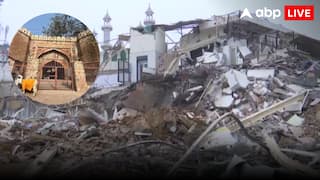Russian Women Have Close Shave In Goa's Candolim, Benaulim As Rip Currents Sweep Them Away
Five Russian women were rescued from drowning off Goa's Candolim and Benaulim beaches by lifeguards after being caught in rip currents.

Five Russian women were saved from drowning off the Candolim and Benaulim beaches in Goa on Tuesday. Personnel from Drishti Marine, a lifeguard service based in Goa, carried out two separate rescue operations and saved the women.
These popular coastal destinations in Goa are especially busy during the December peak season.
In the first incident, three Russian women, aged between 30 and 40, found themselves trapped in a rip current while swimming off the coast. Rip currents are powerful, narrow channels of fast-moving water that flow away from the shoreline towards the ocean. They typically form in the surf zone of beaches with breaking waves and can pose significant dangers to swimmers. Observing their distress, lifeguard Kartik Naik quickly sprang into action, rescuing the trio with the aid of a rescue board.
In a separate incident, two other Russian women, aged 51 and 52, were swept further into the sea by a similar rip current. Seeing their distress, lifeguards Swapnil Farade, Samit, and Dasharath Sangodkar immediately jumped into action to rescue the women.
Farade used a rescue tube to bring one woman back to the shore, while Sangodkar and Samit used a jet ski to rescue the second woman.
Candolim Beach, located at the southern end of Calangute, and Benaulim, just south of Colva, are known for their calm morning waters, which become slightly rougher by afternoon. Both beaches are monitored by Drishti Marine lifeguards from 7:30 am until sunset. The organisation has been involved in saving over 7,700 lives across Goa and Mumbai.
Media organisations quoted Goa Tourism Minister Rohan Khaunte in February as saying that there have been more than 100 drowning incidents in the state in the last five years. He had then said that 105 tourists drowned in North Goa, while 21 tourists passed away in South Goa due to drowning. The deaths occurred off beaches and in rivers, canals, waterfalls, etc.





































